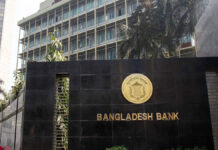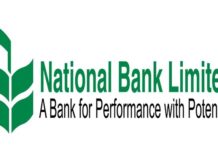JS probe finds up to Tk 400cr invested, rest of the money remains traceless; suggests grilling Hall-Mark boss for answer
Controversial business group Hall-Mark invested only Tk 300-400 crore from the nearly Tk 2,700 crore it had fraudulently taken in loan from Sonali Bank.
A government probe committee that was looking into the scam says it has failed to detect what the company has done with the rest of the money.
More alarmingly, the prospects of recovering the money have become thin as the loan was given on forged documents, the House body said in its report on Thursday.
The report, submitted to the parliament standing committee on the finance ministry, has suggested interrogating the loan frauds to know the whereabouts of the money.
Earlier, Bangladesh Bank and state-run Sonali Bank’s attempts to track down the money have failed.
“Tanvir Mahmud [managing director of Hall-Mark] can say everything,” Tajul Islam, head of the probe committee, told The Daily Star on Saturday.
Asked why the committee has failed to detect where the rest of the money has gone, Tajul said the Hall-Mark MD did not reply to the queries and the documents the probe body had asked for.
Tanvir, his wife Jesmine Islam and her brother Tushar Ahmed are now in jail in connection with the scam.
Investigation found that Sonali Bank’s Ruposhi Bangla Hotel branch lent Tk 3,838 crore against fake documents to Hall-Mark and five other companies between 2010 and 2012. Of the sum, Tk 1,950 crore was funded against inland bill purchase (IBP) and the rest was non-funded liability, which Sonali Bank had accepted to pay.
But the six companies embezzled the amount through opening and settling of letters of credit (LC) among themselves, with no business transactions taking place in reality.
The four-member probe committee has held the bank’s top management responsible for the forgery, saying the biggest banking scam in the country was possible due to weak surveillance and risks management system and flawed internal audit method.
The entire scam was designed by AKM Azizur Rahman, the then deputy general manager of the branch, who sanctioned loans beyond permissible limits, the report said. To sanction these loans, Azizur did not seek the required documents and valid records of the LCs, flouting the relevant laws.
Focusing on Hall-Mark’s assets, the report said it would not be worth more than TK 200-300 crore although Tanvir claimed to have owned properties worth many times the Tk 2,686 crore loans it secured.
“Tanvir has failed to produce his detailed wealth statement before the committee despite repeated notices,” said the report.
The report heavily criticised the top management, including the then managing director, for its sheer failure in supervising the bank’s activities.
The International Trade Finance Division (ITFD) of the bank made the biggest mistake, according to the committee, formed in September.
For instance, the ITFD detected some irregularities in the Ruposhi Bangla branch in 2009 and 2010. Even after the detection, the branch disbursed loans and advances worth Tk 915 crore in 2011, against a target of Tk 191 crore.
“None in the ITFD, including Mainul Huq, deputy managing director and in-charge of the division, questioned this massive growth in loan,” says the report.
Inspection and Audit Division-2 also failed miserably to inspect the branch. In this case, the then managing director of the bank ordered an inspection of the branch on 26 January this year. The ITFD took two months to begin the inspection, and in the meantime Tk 1,900 crore more went out of the bank’s coffer.
“So it can be categorically stated that the ITFD has completely failed to monitor the foreign trade activities of the Sheraton Hotel branch [now Ruposhi Bangla].”
Two deputy managing directors Atiqur Rahman and Mainul Huq, who were responsible for monitoring the ITFD’s activities, never alerted the managing director about the irregularities.
Two general managers Nani Gopal Nath and Mir Mohidur Rahman also failed to protect the bank’s interest, the report said.
The probe committee also held responsible the then board of directors for their failure to run the country’s largest bank properly.
“The parliamentary probe committee has observed that the overall management structure of Sonali Bank has collapsed,” says the report.
The committee, however, did not find any “direct influence” of Syed Modasser Ali, prime minister’s health adviser, in the scam.
Still, it was not fair on Modasser’s part to visit the branch so frequently given the post he held, the report said, adding: “It is evident that the manager of the branch cashed in on the adviser’s image.”
The report offered 11 suggestions for preventing irregularities in the banking sector. They include introduction of SWIFT code in advising or accepting an LC, handing over full regulatory authority of all banks to the central bank and digitisation of banks.
Source: The Daily Star










